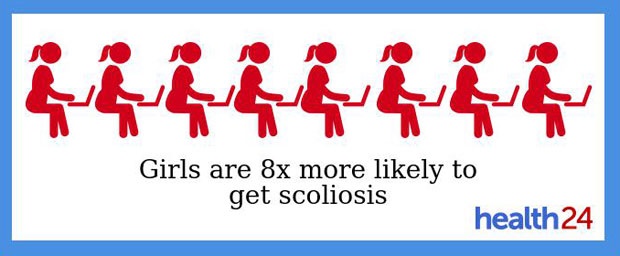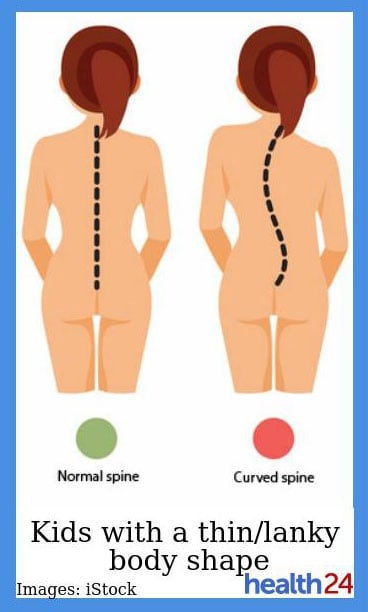[unable to retrieve full-text content]


[unable to retrieve full-text content]

[unable to retrieve full-text content]

Hundreds of women say the vaginal implants left them in pain and unable to walk, work or have sex.
More than 300 individuals want compensation for injuries they claim were caused by DePuy metal-on-metal hips.
Does your child carry a heavy load on their back on a daily basis? Do they slouch in their seats and struggle with one sleeve that appears to be longer than the other? These are examples of everyday challenges children with scoliosis may face – and which should alert parents.
Lugging those heavy books around may be unavoidable, but how is it impacting your child’s health? Are you taking care of your child’s spine?
Rapid growth stage
Scoliosis is a deformity of the spine that involves the rotation of the vertebral bodies. There are six types of scoliosis that can affect children. Congenital scoliosis for example occurs when the spine does not develop properly in the womb. According to Scoli Smart clinics, this condition worsens in about 75% of the children born with it.
Most types of scoliosis in children are however idiopathic, which means that the cause is unknown. Idiopathic scoliosis is easier to treat than the congenital form.
Idiopathic scoliosis and is found in children at around 10–12 years old – when they start their rapid growth stage.
Scoli Smart recommends early intervention as the best way to approach scoliosis.

According to the National Institute of Arthritis and Musculoskeletal and Skin Diseases, parents should look out for:

WATCH: How parents can do a home examination
[embedded content]
The National Institute of Arthritis and Muscuoloskeletal and Skin Diseases recommends these three treatments:
Image credit: iStock
NEXT ON HEALTH24X

Blood donors come forward after the NHS condemns comments about sickle cell disease sufferers.
[unable to retrieve full-text content]

Mums alter the timbre of their voice when talking to adults or babies, say US scientists.
It’s Christmas eve in 2015 and Sinethemba Kuse received news no one ever wants to receive – she has tested positive for tuberculosis (TB). Coupled with that, the TB wasn’t normal: It was multidrug resistant TB (MDR-TB).
In 2016, Sinethemba’s diagnosis changed – her MDR-TB became extensively drug-resistant TB (XDR-TB), a rare form of MDR-TB.
But after two years of treatment and maintaining a fighting spirit, Sinethemba was recently discharged from her clinic as ‘cured’.
Sinethemba was on a rigorous course of medication which was at times painful and occasionally had horrendous side effects, but Doctors Without Borders clinician Dr Anja Reuter tried accessing a new drug which had gone through a few trials and appeared to be safe for children and teens to use.
After Dr. Reuter and her team successfully acquired delamanid, the new drug used for drug resistant TB, Sinethemba became the first teen in Khayelitsha to access it and has been cured.
Very few drug resistant TB sufferers can access delamanid in South Africa, because the Medicines Control Council is yet to approve the drug.
Sinethemba spoke out about her experience because she wants other people who are suffering from the same illness to also get a second chance, like she did. She wants the government to distribute the drug across the country, so all people with TB will have access to it.
[embedded content]
According to Medecins Sans Frontieres (MSF), people with people with multidrug-resistant TB (MDR-TB are still not receiving two newer TB drugs, bedaquiline and delamanid, which have been available for more than four years and have shown improved cure rates for the disease.
Nearly a third of people with MDR-TB, globally, could benefit from these new drugs, but use of the drugs remain limited for a number of reasons, including the fact that some national programmes are “too conservative”, says MSF.
Image credit: Sydelle Willow Smith

They say laughter is the best medicine. They also say there’s nothing better than a good cry. But what do you do when you have no control over these displays?
Pseudobulbar affect (PBA), also known as emotional incontinence, causes people to laugh and/or cry uncontrollably at any given moment. People who suffer from the condition find themselves reacting this way, even though there might be little or no trigger.
A degenerative condition
Scott Lotan is your average family man – husband, father of two beautiful children and lover of pugs. What makes him different from the average family man, though, is that he suffers from PBA.
PBA is the result of brain injury or a traumatic neurological condition. In Lotan’s case, PBA is the result of multiple sclerosis (MS), a degenerative condition where the central nervous system and the brain are affected.
Because MS damages or destroys the protective fatty layer that covers the nerves, suffering from this condition may result in several secondary conditions, and PBA is one of them.
[embedded content]
PBA or depression?
Depression is a secondary condition that people with MS may suffer from.
People may confuse suffering from PBA as depression, because both conditions involve emotion. PBA Info, however, lists a number of distinct differences to tell the two conditions apart:
Another condition PBA should not be confused with is pseudobulbar palsy, which is much worse than PBA, in that sufferers aren’t able to control facial movements and have difficulty with speech and chewing.
Inappropriate display of emotions
Living with PBA can be extremely challenging and embarrassing, because there are many occasions where the emotion displayed is inappropriate.
A documentary has been produced to raise awareness about the condition, and many sufferers, including Lotan, have been able to share their stories and experiences living with the condition.
[embedded content]
There are a few questions to find out if you or someone you care about may be suffering from the condition. The first would be if your laughter or crying matches the way you’re feeling?
A neurologist would be able to give a proper diagnosis and recommend treatment, which may include taking medication, although there is no known cure for the condition.
There are several conditions that may cause people to develop PBA, including Parkinson’s disease, Alzheimer’s disease and stroke.
NEXT ON HEALTH24X
